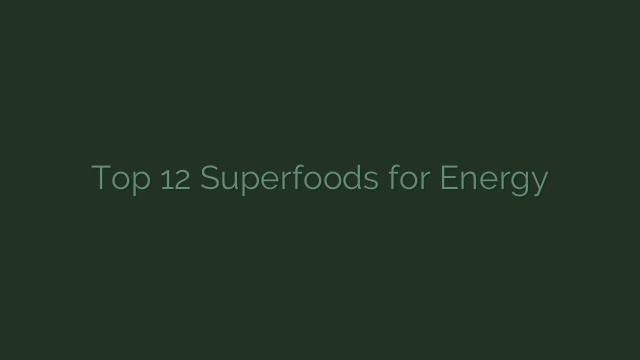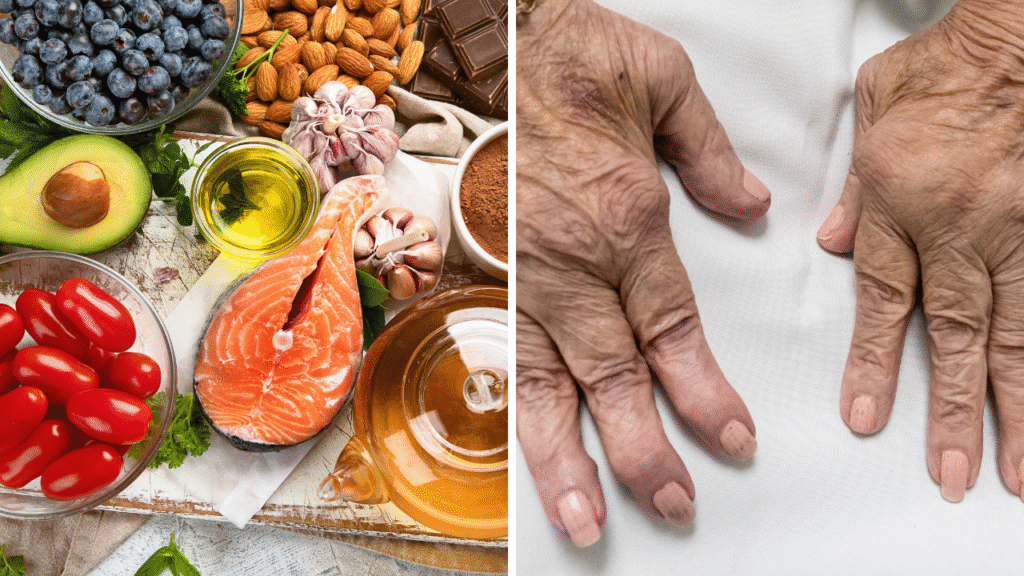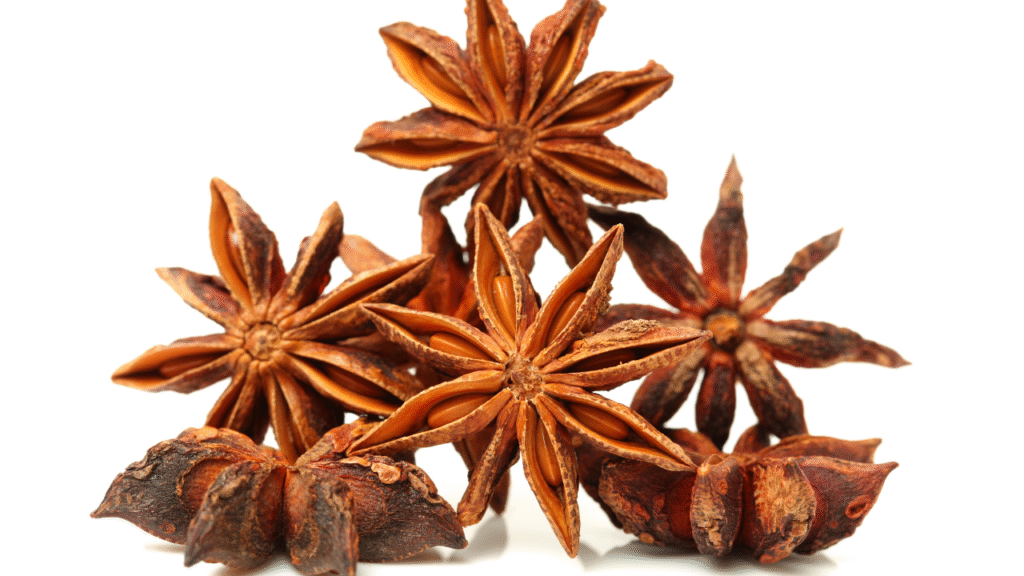Stress is the body’s natural reaction to difficult situations. It shows up as physical or emotional tension. Stress hormones like cortisol and adrenaline are released to help us handle problems like injuries, trauma, work deadlines, or money worries. While some stress can be motivating, long-lasting, or damaging, stress can be harmful. It can weaken the immune system, disrupt sleep, raise blood pressure, and increase the risk of mental health issues like anxiety and depression. Anxiety involves excessive fear and worry, often without a real threat. If anxiety is ongoing and affects daily life, it may signal an anxiety disorder. According to the Anxiety and Depression Association of America (ADAA), nearly 20 percent of U.S. adults experience symptoms of anxiety, from mild feelings to generalized anxiety disorder.
1. Vitamin B complex
The eight B vitamins, known as vitamin B complex, can help reduce stress. They support the production of essential brain chemicals, like serotonin and dopamine, which help control mood and anxiety. A study in PLOS ONE found that B vitamins, such as folate and vitamin B12, can lower the amino acid homocysteine levels. High levels of homocysteine are linked to unbalanced brain chemicals and may lead to anxiety and other mood problems.
2. Vitamin C.
Vitamin C helps the body manage stress by supporting the immune system and producing chemicals that reduce stress. study in Nutritional Biochemistry found that vitamin C can lower cortisol levels, the primary stress hormone. The research suggests that vitamin C supplements can quickly help with anxiety and may help treat anxiety disorders.
3. Vitamin D.
Vitamin D is essential for reducing anxiety and stress. When people do not get enough vitamin D, their risk of anxiety disorders increases. Vitamin D helps control stress hormones and keeps cortisol levels in check, which lowers stress and anxiety. Taking vitamin D3 can help improve anxiety symptoms, especially for those under chronic stress. To get the best results, take vitamin D3 with vitamin K2. The recommended amount is 10 mcg of vitamin K2 for every 1000 IU of vitamin D3.
4. Vitamin E.
Chronic inflammation can harm brain function and make it harder to manage anxiety and stress. Vitamin E is a potent anti-inflammatory that helps protect brain tissue from inflammation. This may help explain why taking vitamin E supplements can reduce stress and anxiety symptoms.
5. Vitamin K.
Vitamin K helps manage conditions related to anxiety and stress, even though it doesn’t directly affect brain function. Vitamin K2 can reduce heavy periods by improving blood clotting. This can lower anxiety in women who experience heavy menstrual bleeding, known as menorrhagia. While more research is needed, not having enough vitamin K may lead to pattern hair loss, which is often linked to anxiety. Keeping vitamin K levels healthy may help slow down or even reverse hair loss.
6. Magnesium
Magnesium is known as nature’s relaxation mineral because it helps calm the nervous system and balance mood by managing brain chemicals. It plays a vital role in regulating neurotransmitters, which affect our emotions. When stressed, our bodies use more magnesium, which can lead to a deficiency. Taking magnesium supplements during stressful times can help. Our Sound Sleep Patch contains natural ingredients that help you fall asleep faster and improve sleep quality. It also boosts morning alertness and reduces daytime fatigue. With magnesium included, it supports relaxation and the creation of serotonin. A good night’s sleep is vital for managing stress and anxiety.
7. CBD, or cannabidiol
CBD, or cannabidiol, helps many people manage stress and anxiety. It works with the body’s endocannabinoid system, which helps control stress responses and balances sleep and mood. Using topical patches is an easy way to add CBD to your daily routine and help you relax. Vitamins, like Vitamin B Complex, also support your body’s natural response to stress. At The Vitamin Patch, we want to help you manage stress and anxiety so you can live a happier, more balanced life.
8. L-theanine
Both green and black tea have l-theanine, an amino acid that may help reduce anxiety and act as a mild sedative. A 2016 study found that people who took 200 mg of l-theanine had lower stress and cortisol levels after a demanding task than those who took a placebo. Start with 200 mg, the smallest effective dose, and do not take more than 400 mg without talking to a doctor. Avoid using l-theanine with sedatives like midazolam.
9. Multivitamin and Mineral Supplements
People with anxiety may find help from vitamin and mineral supplements. A study in 2019 showed that young people had less anxiety when they took a supplement with B vitamins, vitamin C, calcium, magnesium, and zinc. Another study in 2018 suggested that multivitamins could improve mood disorders, including anxiety. Since the ingredients in multivitamins can vary by brand, it’s a good idea to ask a doctor or pharmacist for advice on which one might be best. Generally, multivitamins do not affect anxiety medications.
10. Omega-3 Fatty Acids
Fish and flaxseed are important sources of omega-3 fats, essential for brain health since the body cannot make them. A 2018 review of 19 studies found that omega-3 supplements, like fish oil, may help people with anxiety. Low omega-3 intake can increase the risk of anxiety and depression, and supplements could help prevent or treat these issues. People taking blood thinners or with health problems should talk to a doctor before using omega-3 supplements.
11. Valerian Root
The valerian plant has been used for medicine for thousands of years, mainly to help with anxiety. The NCCIH says it is safe for healthy people to use valerian for short periods. However, more research is needed to understand how safe and effective it is in the long term. A 2017 study with 48 postmenopausal women found that those who took valerian reported less anxiety and depression. It’s important to know that valerian can cause side effects when taken with benzodiazepines and other sedatives.
Natural remedies for anxiety and stress
1. Start exercising
Exercise can help reduce anxiety symptoms. Some research suggests that high-intensity exercise may work better than low-intensity exercise. It can also help with anxiety caused by stressful situations, like quitting smoking.
2. Meditation
Meditation can help calm racing thoughts, making it easier to handle stress and anxiety. Different types of meditation, like mindfulness and yoga meditation, can support this process.
3. Journaling
Expressing anxiety can help make it feel easier to handle. Research shows that writing, like journaling, can help people deal with anxiety better. For example, a 2018 study found that writing about emotions may reduce stress and improve well-being.
4. Time management strategies
Many people feel anxious when they have too many commitments, such as family, work, and health activities. Creating a clear action plan can help reduce this anxiety. Good time management and breaking large projects into smaller steps can lower stress.
5. Cannabidiol oil
CBD oil comes from the cannabis plant and does not have THC, which is the compound that makes you feel “high.” Some people believe it may help with anxiety, but there isn’t enough evidence to confirm if it is effective. You can buy CBD oil without a prescription at many alternative health stores. In places where medical cannabis is legal, doctors can prescribe it as well.
6. Sleep
Anxiety makes it hard to fall asleep and get good rest. Not getting enough sleep can also make anxiety worse. To help reduce anxiety, stick to a regular bedtime routine, create a comfortable sleep environment, and get professional help if lifestyle changes don’t work.
Sources
https://adaa.org/understanding-anxiety/facts-statistics
https://journals.plos.org/plosone/article?id=10.1371/journal.pone.0012244
https://www.sciencedirect.com/science/article/pii/S09552863203049
https://www.ncbi.nlm.nih.gov/pmc/articles/PMC4844851/
https://www.medicalnewstoday.com/articles/benefits-of-exercise
https://www.aafp.org/pubs/afp/issues/2019/0515/p620.html
https://www.ncbi.nlm.nih.gov/pmc/articles/PMC6305886/
https://adaa.org/understanding-anxiety/cbd
https://www.columbiapsychiatry.org/news/how-sleep-deprivation-affects-your-mental-health






